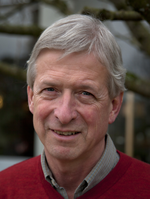COHRED makes statement to the 66th World Health Assembly on the financing and co-ordination of health research
 COHRED made a strong plea to the 66th World Health Assembly on the 24th of May. Member states were considering whether or not to pass a resolution to progress the work of the Consultative Expert’s Working Group on the financing and co-ordination of R&D. COHRED reminded the assembly that must also be paid to strengthening country research management capacity, supporting country-defined research agendas, and for greater national investment in R&D. The statement we made follows below.
COHRED made a strong plea to the 66th World Health Assembly on the 24th of May. Member states were considering whether or not to pass a resolution to progress the work of the Consultative Expert’s Working Group on the financing and co-ordination of R&D. COHRED reminded the assembly that must also be paid to strengthening country research management capacity, supporting country-defined research agendas, and for greater national investment in R&D. The statement we made follows below.
COHRED statement to the 66th World Health Assembly, Friday 24th May 2012
Agenda Item 17.2: Follow up of the report of the Consultative Expert Working Group on Research and Development: Financing and Co-ordination
Distinguished delegates, Madame Chair. Thank you for this opportunity to speak on behalf of the Council on Health Research for Development.
First, recognition must go to those who have progressed the discussions on financing, monitoring and co-ordination of R&D to this stage. 10 years of work. To show due honour to this work, and to the continuing needs of the many which the current system for health R&D does not adequately serve, we at COHRED call on Member States to renew their focus and energy. Towards this, we have the following remarks to make with regard to the three strands of this discussion:
On monitoring:-
We endorse the request in operative paragraph 4(3) of the draft resolution to establish a Global Health Observatory. However, 2 notes of caution: we emphasise that such an endeavour cannot simply be a supra-national process. Monitoring capacity must also be built from the bottom up. Countries must be supported in mapping national R&D resources. This enables countries to assess whether R&D resourcing in their countries accords with their priorities. This is also an opportunity to strengthen country research management capacity.
Secondly: We urge member states to commit to financing this endeavour in a comprehensive and sustainable manner, or risk ensuring its failure.
On co-ordination:-
We note operative para 4(5): the request to review existing mechanisms to assess their suitability to perform co-ordination functions. We remind delegates that the CEWG report stressed the importance of supporting country-led research agendas. When designing a priority setting process at the global level, country agendas must be recognised and incorporated into the process – thereby increasing its legitimacy.
On financing:-
Nothing will happen without financial commitments. The observatory, a global priority-setting process, and the demonstration projects will not happen. Member states must be willing to commit funds.
On the demonstration projects in operative para 4(4); care must be taken in their selection. They must incorporate the principle of delinking of the costs of research from the prices of the products. They must also support the other principles outlined in the CEWG report, including building sustainability of R&D through capacity strengthening. They must progress the multilateral process, and not delay it. Their criteria for success should be on their ability to test alternative funding models and incentives.
The more years that are added to the clock on this process, the greater the number of people we have failed. We support the multilateral process, but we remind those present that there is no need for low and middle-income member states to wait until 2016 to take action on R&D financing. We urge Southern governments to continue to invest more in research and innovation. To reach out to like-minded neighbours, to form a consortium, and to create their own research and development fund to address their health R&D needs.
We wish delegates renewed energy, enthusiasm and focus in today’s discussions. Thank-you.
